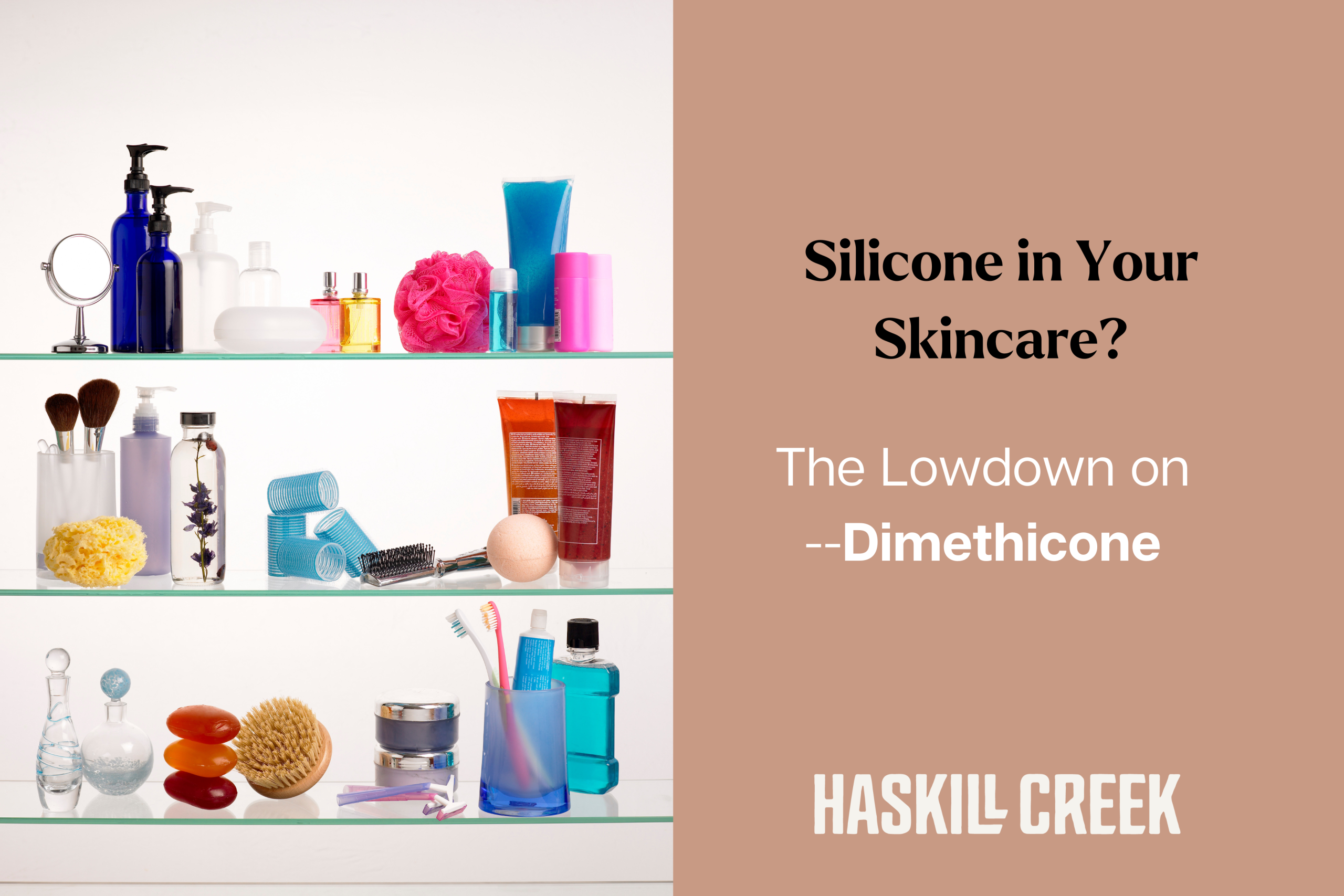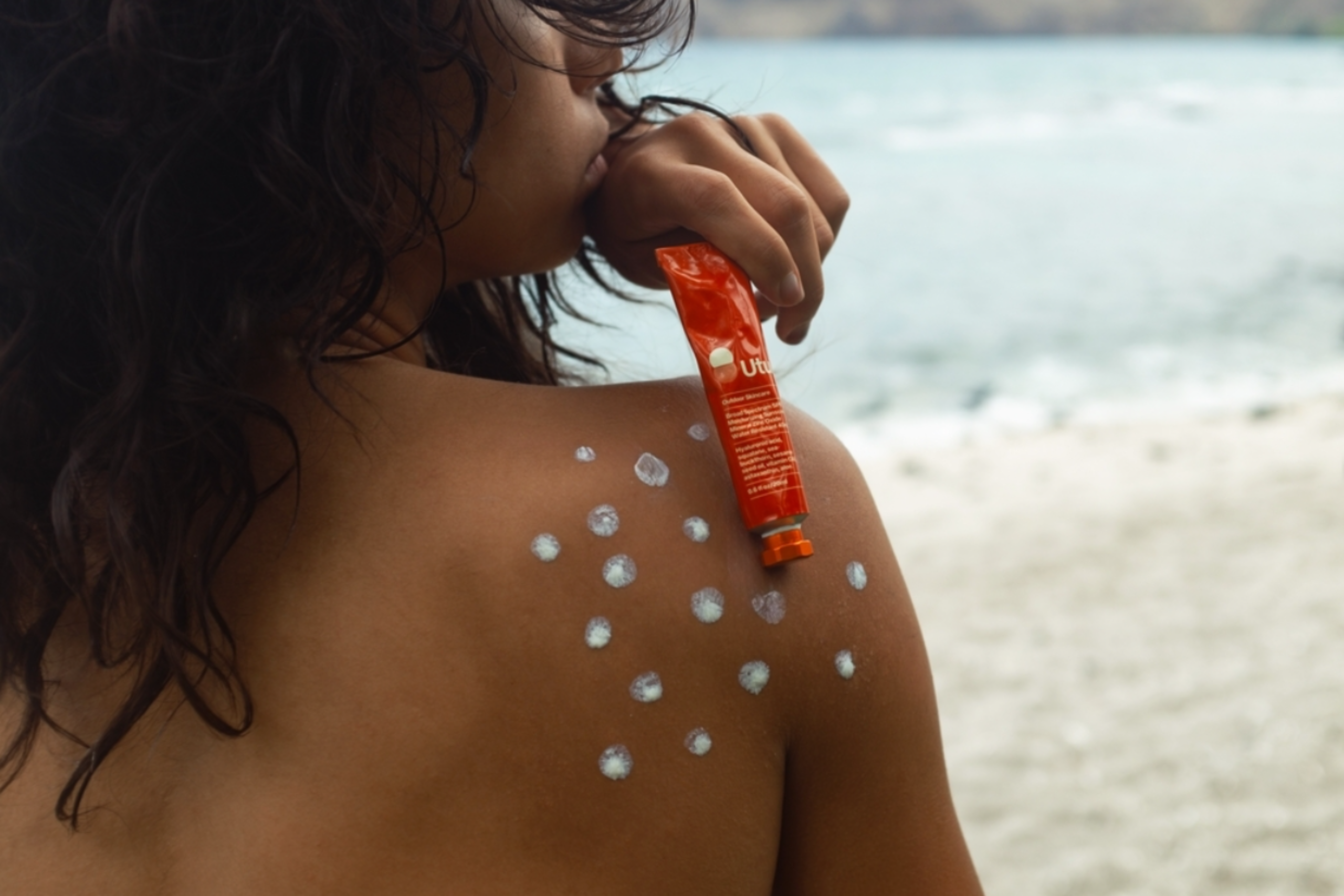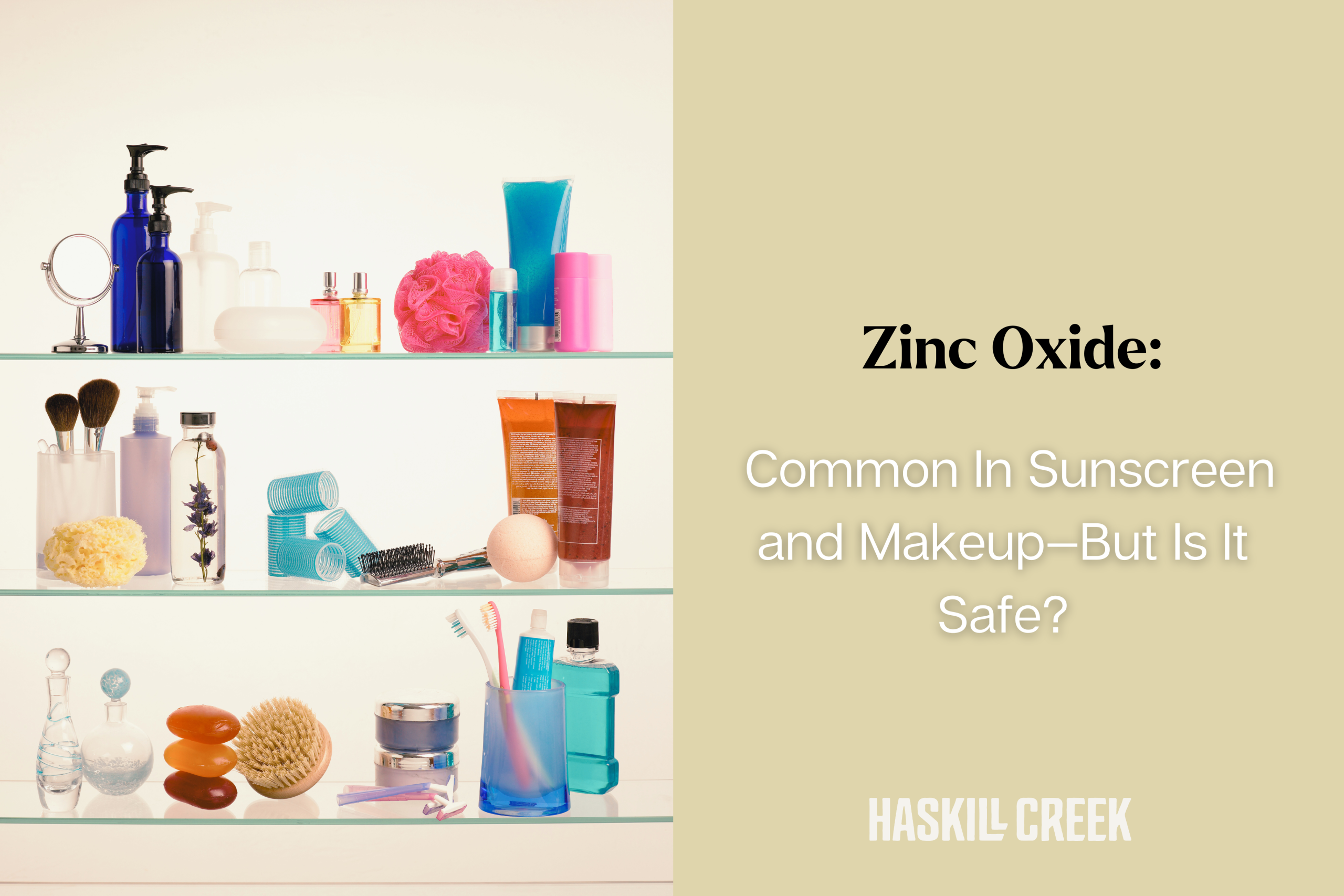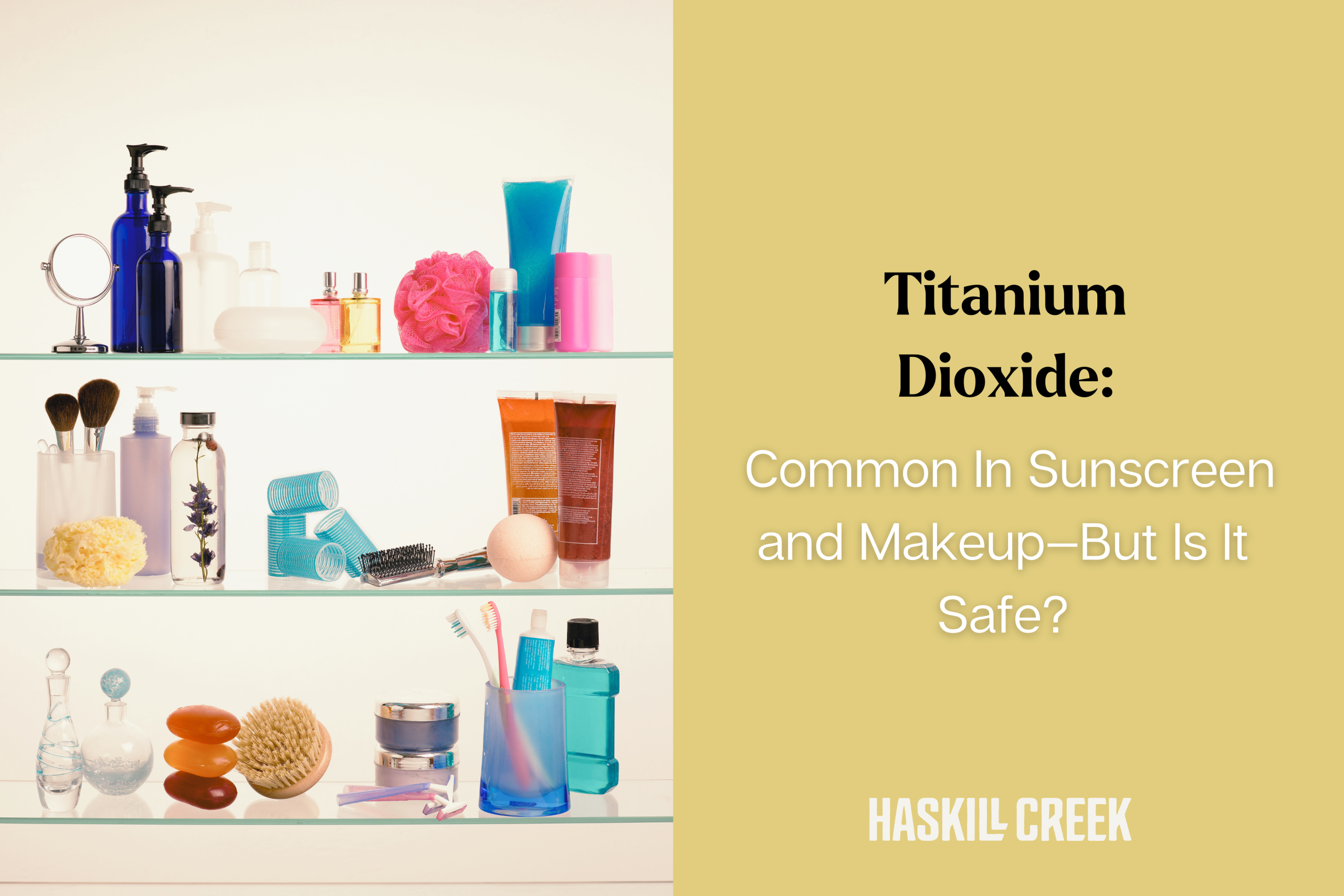Silicone in Your Skincare? The Lowdown on Dimethicone

Ingredient Curious: Dimethicone
If you're reading this and missed our first post Curious About Ingredients-Phthalates, you probably care—or are at least curious—about the ingredients in your everyday products. Not all ingredients are created equal, and let’s be honest, decoding labels isn’t always easy. Before starting Haskill Creek (and, really, this blog), I couldn’t confidently explain why some ingredients are great and others are best avoided.
So, we’re breaking it down. Each post in this series will spotlight a different ingredient—what it is, what it does, and whether it’s a friend or foe. I’ll be your guide, with research-backed insights from the Haskill Creek team. Got an ingredient you’re wondering about? Email us at Hello@haskillcreek, and I’ll dig into it!
Dimethicone (Safe With Caution)
What is Dimethicone? Dimethicone is a type of silicone* known for its ability to make things feel smooth and silky.(🔗)
Various Names for Dimethicone Dimethicone can be tricky to spot because it’s often listed under different names of the same silicone-based ingredient on ingredient labels. Here are a few to watch for:
-
Polydimethylsiloxane (PDMS)
-
Methicone
-
Silicone oil
-
Dimethylpolysiloxane
Benefits: Think of it like a raincoat for your skin and hair. It’s a protective barrier that keeps moisture locked in and environmental elements (e.g. pollution, UV damage, heat) out. This is why it’s popular in products like moisturizers, conditioners, and even some makeup.
-
Non-comedogenic, Hypoallergenic* and non carcinogenic
-
Acts as a Barrier: Helps lock in hydration provided by other ingredients.
-
Enhances Texture: Provides a smooth, silky feel, making the product easier to spread and more pleasant to use.
-
Skin Protection: Often used to soothe and protect irritated or damaged skin
-
Improves Wear of Other Ingredients: Helps stabilize formulations and allows other ingredients, like hyaluronic acid, ceramides and glycerin, to penetrate more effectively by preventing them from evaporating quickly.
Why Safe With Caution? Dimethicone is considered non-toxic because it unlikely to get absorbed into the skin because of it’s large molecule size.(🔗) Most over-the-counter products contain less than 15% Dimethicone, which is far below the global safety limit of 1-30%.(🔗)
However, there are a few things to be aware:
-
Skin Concerns: It creates a barrier on the skin that can trap dirt, oil, and bacteria. For some people with sensitive or acne-prone skin, this might lead to irritation or breakouts.
-
Environmental Impact: Dimethicone is non-biodegradable, meaning it doesn’t break down in the environment. Over time, it can build up in waterways and ecosystems, which isn’t great for the planet.
-
Build-Up on Hair: In haircare products, Dimethicone can coat the hair, leaving it smooth at first, but with repeated use, it can cause build-up. This build-up can make hair feel heavy or dry over time because it blocks moisture from getting in.
Haskill’s Position: We recognize that Dimethicone is considered safe by regulatory bodies and dermatologists, and it plays a role in many skincare formulas. However, we also value transparency and sustainability—and we know some of you prefer to avoid it.
If you want to know which of our products have Dimethicone in them, please don’t hesitate to ask a member of our staff.
*Silicone is a man-made material made from silicon (a natural element found in sand) combined with oxygen and other chemicals. It’s flexible, water-resistant, and long-lasting, which is why it’s used in things like hair products, skincare, and even medical devices.(🔗)

Sign up for our newsletter!
Join to get the Haskill Newsletter and be the first to learn about new products, events, and other goings-on at Haskill Creek!









